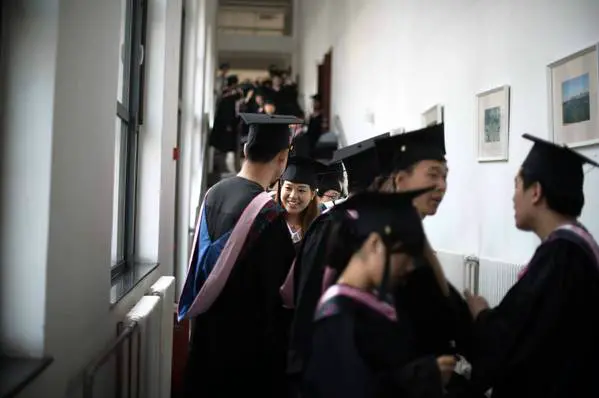As the number of Chinese college graduates increases, their average monthly salaries lag behind. By 2017, over seven million students are expected to graduate, a yearly increase of less than three percent.
Despite the fact that the growth rate of students graduating college is slowing down, the current number is already massive, resulting in a glut. The increase in supply exceeds the increase in demand. Consequently, the market value of a fresh graduate shrinks, as well as their expected income.
Official statistics show that from 2005-2015, there’s been a roughly 137 percent increase in monthly income for graduates of four-year universities. In 2005, the average monthly income for a fresh graduate stood at ¥1,588 ($238). In 2010, Qinghua University’s Economic Society and the Education Bureau conducted a follow-up study of recent grads.
They found the average monthly income to be ¥2,153 ($322). Five years later, a 2015 report showed six months following graduation, that year’s graduating class had an average monthly income of ¥3,726 ($558).
Over the same period, migrant workers saw their average monthly income rise from ¥875 ($131) to ¥3,072 ($460), according to data from the Ministry of Human Resources and Social Security. In other words, the average monthly income for migrant workers has increased by 251 percent over the same period. So while in 2005 college graduates earned 1.8 times the amount of migrant workers, that multiple has since shrunk to 1.2, or by 60 percent.
The Chinese government has recognized the glut of graduates from four-year universities and is moving to alleviate the issue. For example, it will reportedly convert around 600 colleges to vocational schools by the end of 2017. These schools should help move China’s massive labor supply towards equilibrium with the economy’s labor demand.
(PEOPLE'S DAILY ONLINE)
 简体中文
简体中文

